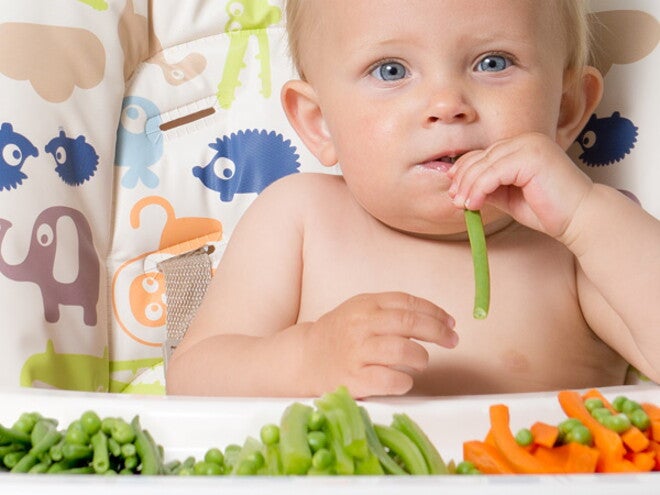
Time for Finger Foods
Time for Finger Foods
Enjoying finger food
Once you notice your baby begin to grasp small objects, he is ready to begin feeding himself. It’s time for introducing finger foods! It’s more than just fun, as finger foods add texture to the diet and encourage self-feeding to help with oral and motor development. Remember, babies should always be supervised whenever they’re eating or drinking.
What’s the big fuss about finger foods?
Introducing finger foods will allow your baby to continue developing his oral and motor skills. You’ll know he’s ready when he is able to pick up objects with his thumb and index finger. Finger foods are one of the first steps in self-feeding and an important move towards using utensils.
Embrace the mess
Babies are not always the most polite guest at the dinner table but try to let it slide. Smashing, mushing and even throwing food are all ways for baby to learn about and explore the food he is eating. Recent research suggests that this type of play helps babies to learn to identify different types of food. Make it easier on yourself by providing small portions and putting down an easy-to-clean mat or shower curtain under his high chair.
Watch out for these finger foods
If your baby only has his front teeth, he’s capable of biting off a chunk of an uncooked carrot but he can’t actually chew it up, which means he could choke on it. Small, round or cylindrical foods have the greatest potential to become choking hazards for toddlers and babies.
Related articles
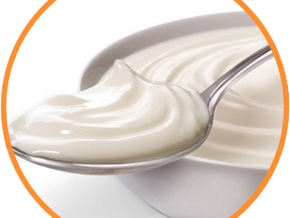
Acidified foods: Good just like your mother said!
Did you know…. More than 8000 years ago our ancestors made bread, beer and wine through fermentation.
5 mins to read
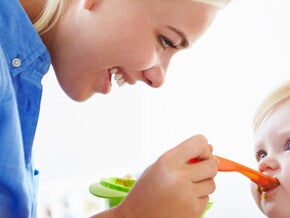
The adult’s role
The adult’s role is to provide children with nutritious foods. Adults are responsible for what and when their children are fed.
5 mins to read


Your 6 to 12 month old’s hunger & fullness cues
Understanding your baby's hunger & fullness cues. Learn to identify when to feed and when they're full.
2 mins to read

The Confident Eater from around nine months
As your baby develops his chewing and swallowing ability, he is now ready to take on more challenging, richer tastes and textures.
5 mins to read
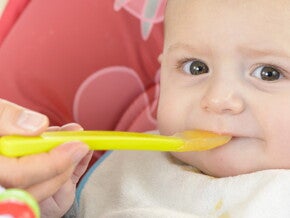
The Explorer Eater from around seven months
When your baby has successfully learned to eat solid food, he is ready to explore new tastes.
5 mins to read

At nine months
Your baby sits alone and pivots into a crawling position. He crawls on extended limbs and holds on to furniture to pull himself up to stand.
5 mins to read

At ten months
- He enjoys nursery rhymes and games. Encourage and play with him. Talk to him and imitate and add to his sounds.
- Encourage self-occupation.
5 mins to read

Baby meal planner 10 to 12 months
Around 10-12 months, babies are ready for harder finger foods & self-feeding.
1 min to read
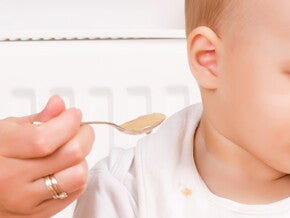
A day in your 6 to 7 month old’s diet
This sample day was created by registered dieticians to help meet the nutrition goals for your 6 to 7 month old baby.
5 mins to read
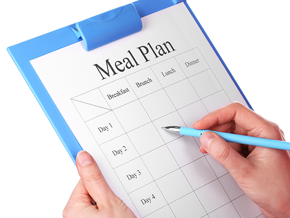
Baby meal planner 8 to 10 months
Around 8-10 months, increase the variety and texture of foods for your baby.
1 min to read

Emotional development in Your Baby
Your baby is discovering their emotions from birth.
3 mins to read
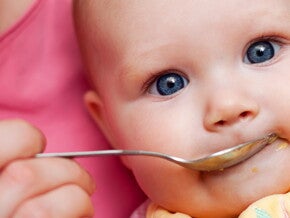
Why do we introduce solids to a babys diet
About halfway through the first year of life, babies begin to outgrow their liquid diet, which no longer supply them with enough nutrients to support their rate of growth.
5 mins to read

Healthy Growth
How a baby is fed may be as important as what foods are offered. Your baby is growing in leaps and bounds. The first year, a baby multiplies his weight by 3 and his size increases by 50%!
1 min to read
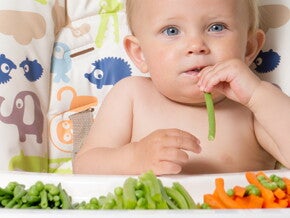
How to handle choking
A new texture, taken for the first time, may make your baby gag out of surprise.
5 mins to read

At six months
At this stage, baby’s development is on ‘fast-forward’. It’s an ideal time for sitting up and looking around. So, what’s the most interesting thing for baby right now? Baby’s mouth!
5 mins to read
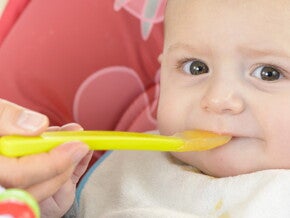
First spoonfeeding experience
Choose a spoon that is small and smooth-edged. You may find plastic or rubberised spoons easier to use.
5 mins to read

When do we introduce solids to the diet
Birth to six months
It is too early to introduce solids if your baby:
5 mins to read

At seven to eight months
Look out, baby’s on the move!
5 mins to read